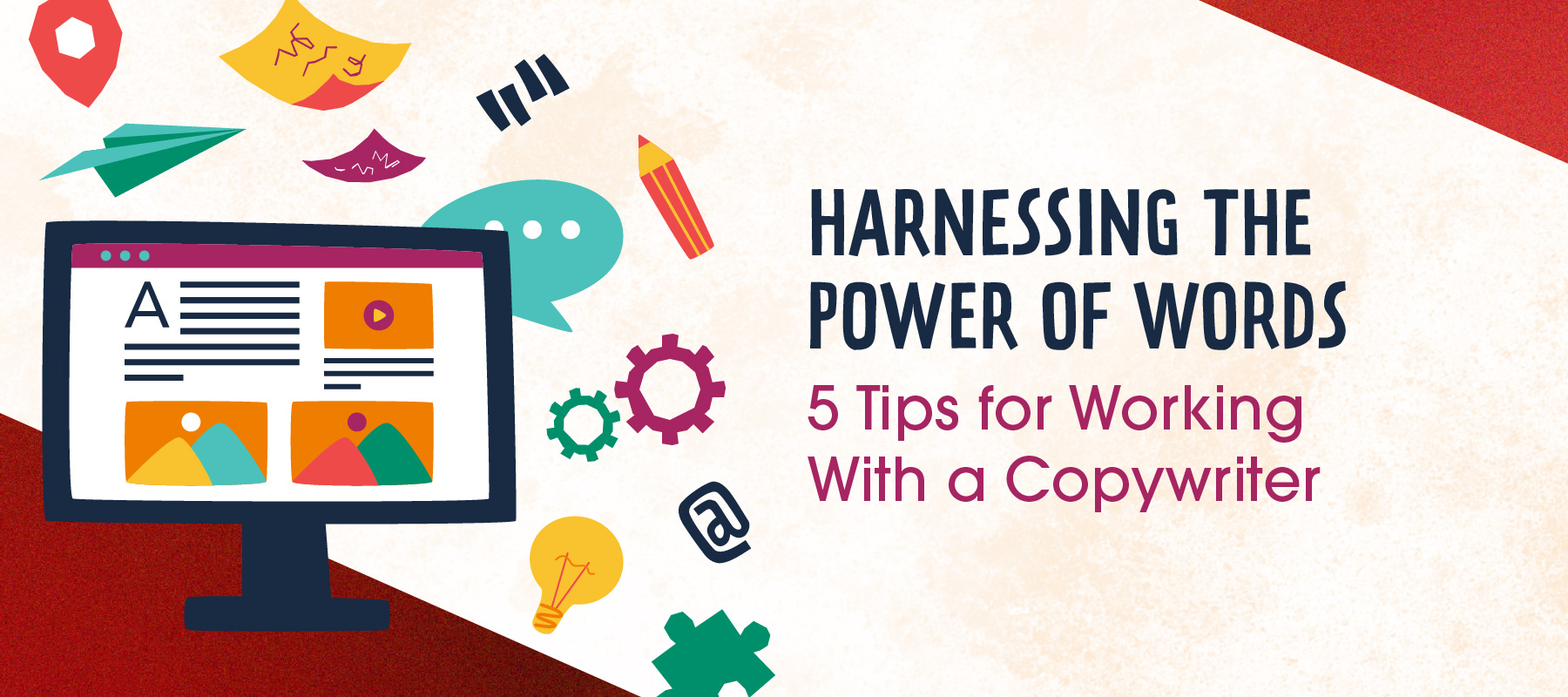
As fellow marketers, you don’t need to be told just how powerful words are.
Words shape our campaigns and narratives. They captivate, convert, and forge powerful connections with our target audiences. In short, when it comes to effective marketing, words are everything.
But because of their power, words can also be tricky. How are you supposed to know which words to use, which words not to use, and which order to use them in?
Enter the copywriter.
Whether you have one on staff or engage one as a contractor, copywriters can serve as your wordsmith warriors and your verbal Van Goghs. They can bring your existing campaigns to the next level and help you develop entirely new campaigns.
But before you can reap all the benefits of working with a copywriter, it’s important to know how to work with one. Here are some tips for making the agency-copywriter relationship a match made in marketing heaven.
1. Give clear, jargon-free instructions.
Just as you adapt your words to the kind of campaign you’re running, you should do the same when giving instructions to a writer. You don’t want to use the same jargon-heavy descriptions you use when pitching to a client. Copywriters need direct and specific instructions that include your goals, your target audience, and the desired tone. That doesn’t mean the writer will produce a plain piece of copy —rather, they just want a solid foundation on which to build something great.
2. Save time (and costs) by knowing exactly what you want.
It happens. Sometimes, circumstances (or a client’s mind) will change after marching orders have been given, or even after a draft has been produced. When that happens, you’ll have to ask your writer to either change direction or start over again. Writers know that’s part of the game and will most likely be prepared for a wholesale edit. However, you should always try to have a final brief and exact direction in mind before issuing an assignment. Sending a writer back to the drawing board should be an exception rather than a standard.
3. Give specific feedback.
A lot has probably changed since your high school English class, but one lesson remains the same: first drafts are never perfect. Don't be afraid to give feedback if a copywriter delivers a draft that needs fine tuning. But be constructive and, most importantly, be specific. Point out areas that didn’t work and areas that did. If you have suggestions, offer them, and always keep the overall goals in mind. Remember, you're both on the same team!
4. Let them do their thing.
You hired a copywriter for a reason, right? Trust their expertise and give them the space to craft and refine. I know—it can be tempting to micromanage every sentence. However, if you let your copywriter use their knowledge and creativity when word-weaving, you’re likely to get better copy that resonates more strongly with your audience. Sometimes, the best results come from letting go of the reins.
5. Celebrate your victories as a team.
Converting a lead with a striking headline? Landing a sale with a persuasive email? It’s all worth celebrating—and doing so helps your copywriter build a better sense of what does and doesn’t work for your brand. Recognizing good work keeps the fire burning and strengthens your bond. Plus, it can lead to even stronger work down the line.
Remember, a copywriter is an asset and a partner. By following these tips, you can transform your collaboration from a one-way street to a symphony of words, conversions, and marketing magic.
Ready to ditch the blank page and bring your marketing materials to life? Boombox is here to help! Send us a message to find out how one of our resident wordsmiths can help you sharpen both your pencil and your messaging.

The Real Reason Innovation Fails (And What to Do About It)
Innovation is essential for long-term growth. Yet despite big investments and bold ambitions, many companies continue to fall short. Why? Because...
.jpg)
The Behavioral Science Secret to Marketing That Actually Changes Minds
More marketers today talk about behavioral science (BeSci) than ever before, but many are missing the real opportunity. Most use BeSci to improve...
 Thafer Danial
Thafer Danial

